
Journal of Gaming and Virtual Worlds
Scope & Guideline
Connecting Scholars and Practitioners in Gaming.
Introduction
Aims and Scopes
- Cultural and Social Impact of Games:
Investigates how video games influence and reflect societal values, norms, and behaviors, including themes of inclusivity, diversity, and representation. - Game Design and Mechanics:
Analyzes the intricacies of game design, including mechanics, aesthetics, and player interactions, often employing case studies to illustrate these concepts. - Narrative and Rhetoric in Gaming:
Explores the storytelling aspects of games, examining how narratives are constructed and their rhetorical effects on players, especially regarding mental health and morality. - Play and Experience:
Focuses on the phenomenology of gaming and the player experience, including emotional responses, social dynamics, and the ethics surrounding gameplay. - Technological and Economic Aspects of Gaming:
Addresses the implications of technological advancements in gaming and the economic structures that support the gaming industry, including user-generated content, copyright issues, and gamification.
Trending and Emerging
- Social Dynamics in Gaming:
An increasing emphasis on the social aspects of gaming, particularly in multiplayer contexts, showcases the importance of community and social expressiveness among players. - Mental Health and Gaming:
Research focusing on mental health representations and player experiences is gaining traction, indicating a growing interest in the psychological implications of gaming. - Diversity and Inclusivity:
There is a notable rise in studies addressing diversity and inclusivity within gaming narratives and communities, reflecting broader societal movements towards representation. - Game Localization and Globalization:
An emerging focus on the localization of games and the cross-cultural implications of gaming indicates an interest in how games are adapted for different audiences globally. - User-Generated Content and Copyright:
Research on the implications of user-generated content and related legal issues is trending, highlighting the evolving relationship between players and game developers.
Declining or Waning
- Traditional Game Genres:
Research centered on conventional game genres such as platformers and shooters has seen a decline, as scholars increasingly explore innovative and hybrid genres. - Nostalgia in Gaming:
The examination of nostalgic themes in gaming, while still relevant, has become less frequent, suggesting a shift towards contemporary and future gaming experiences. - Single-Player Game Experiences:
The focus on single-player gaming narratives and mechanics is waning as more research gravitates towards multiplayer and social gaming dynamics. - Historical Gaming Analysis:
While historical perspectives were once a significant focus, there seems to be a reduction in studies specifically analyzing historical games, likely as the field moves towards more current and emergent trends.
Similar Journals
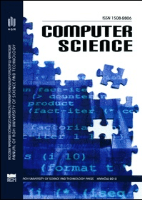
Computer Science-AGH
Fostering Innovation Through Open Access KnowledgeComputer Science-AGH, published by the AGH University of Science & Technology Press in Poland, is an esteemed open access journal that has been disseminating high-quality research since 2004. With ISSN 1508-2806 and E-ISSN 2300-7036, this journal focuses on a diverse range of areas within the computer science discipline, including but not limited to Artificial Intelligence, Computational Theory, Computer Graphics, and Networks. While it currently holds a Q4 ranking across several categories as of 2023, it actively promotes research that contributes to the academic community's understanding and evolution in the field. The journal's commitment to open access ensures that vital research is accessible to a wider audience, fostering collaboration and innovation. With its comprehensive focus and strategic publication goals, Computer Science-AGH plays a crucial role in advancing the frontiers of computer science research and education, making it an invaluable resource for researchers, professionals, and students alike.

ICGA JOURNAL
Exploring the intersection of technology and creativity.Welcome to the ICGA Journal, an esteemed publication by IOS Press, dedicated to advancing the field of computational and algorithmic research within computer science. Established with the ambition of fostering innovative dialogue among researchers, this journal focuses on diverse areas such as computer graphics, human-computer interaction, and computational mechanics. Despite undergoing some changes over the years, including its coverage discontinuation in Scopus, the ICGA Journal remains a pivotal resource for professionals and students alike, offering insights into cutting-edge research and methodologies. With a rich history spanning from 2005 to 2015 and in 2017, it continues to be a platform for scholarly exchange, striving to elevate the discourse in the field. Explore the journal's vision through its open access options that promote knowledge dissemination and accessibility among the global research community.

Technoetic Arts
Pioneering Research at the Intersection of Creativity and TechTechnoetic Arts, an influential journal published by INTELLECT LTD, serves as a vital platform for interdisciplinary research at the intersection of the arts, philosophy, and technology. Established in 2003, this journal has evolved to encompass a diverse range of innovative topics, while focusing on the critical examination of art's future amid rapid technological advances. With an ISSN of 1477-965X and E-ISSN 1758-9533, it appeals to researchers, professionals, and students interested in explorations within the fields of Computer Science Applications, Human-Computer Interaction, Philosophy, and Visual Arts and Performing Arts. Although currently not open access, Technoetic Arts is recognized for its rigorous scholarship, as evidenced by its Scopus rankings—achieving the 75th percentile in Visual Arts and Performing Arts. The journal operates from its base in the United Kingdom, offering a unique lens through which contemporary techno-artistic dialogues are examined and promoted. As it aims for continuous improvement in academic merit and relevance, Technoetic Arts remains an essential resource for anyone looking to engage with the transformative power of technology in art.
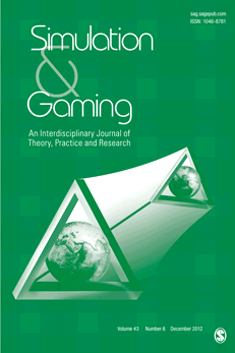
SIMULATION & GAMING
Advancing Knowledge at the Intersection of Reality and VirtualitySIMULATION & GAMING, published by SAGE PUBLICATIONS INC, is a leading academic journal that explores the intersection of simulation and gaming within diverse fields such as business, social sciences, and computer science. With an ISSN of 1046-8781 and an E-ISSN of 1552-826X, this journal stands out in its commitment to advancing knowledge through high-quality research and innovative methodologies. As a testament to its influence, it is ranked Q1 in Social Sciences and Q2 in both Business, Management and Accounting, and Computer Science Applications, indicating its reputable position among scholars. Researchers, educators, and professionals will find valuable insights into the applications and implications of simulation and gaming, making it an essential resource for cutting-edge developments in these rapidly evolving domains. Access to its comprehensive archives allows for exploration of pivotal studies dating back to 1970, supporting the ongoing dialogue in this interdisciplinary area of research.
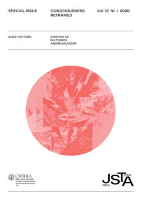
Journal of Science and Technology of the Arts
Advancing Interdisciplinary Dialogue in the Arts.The Journal of Science and Technology of the Arts, published by UNIV CATOLICA PORTUGUESA, is a pioneering open access journal dedicated to the interrelation of the arts and scientific advancements. Since its inception in 2009, it has served as a critical platform for disseminating innovative research across various disciplines, including Visual Arts, Performing Arts, Music, and Conservation. With its ISSN 1646-9798 and E-ISSN 2183-0088, the journal operates from Portugal, attracting a diverse international audience. Although it is currently ranked in Q4 for Arts and Humanities (miscellaneous) and Computer Science Applications, it has achieved notable Q3 rankings in Conservation, Music, and Visual Arts and Performing Arts as of 2023. The journal's impact is reflected in its Scopus rankings, which place it in the midst of its peers, showcasing its growing influence. Through its commitment to fostering interdisciplinary dialogue, the Journal of Science and Technology of the Arts is essential for researchers, professionals, and students interested in the innovative integration of arts and technology.
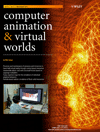
COMPUTER ANIMATION AND VIRTUAL WORLDS
Connecting Creativity with Cutting-edge Technology.COMPUTER ANIMATION AND VIRTUAL WORLDS, published by Wiley, is a pivotal journal in the fields of Computer Graphics and Computer-Aided Design, as well as Software. With a focus on the intersection of technology and creativity, the journal provides a platform for researchers and professionals to share innovative studies, new methodologies, and insights that shape the future of computer animation and virtual environments. Currently holding a Q2 category in Computer Graphics and a Q3 in Software for 2023, it ranks #63 out of 106 in its niche, highlighting its influence and relevance in the academic community. Though the journal operates under a subscription model, it also offers options for open access, ensuring that a broader audience can engage with groundbreaking research. The journal has been publishing continuously since its inception in 2004 and looks forward to further contributions as it moves towards its 20th anniversary in 2024. Whether you are a seasoned researcher, an industry professional, or a student eager to explore these dynamic fields, COMPUTER ANIMATION AND VIRTUAL WORLDS is an essential resource for advancing knowledge and innovation.
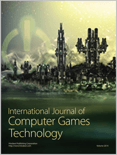
International Journal of Computer Games Technology
Connecting Research and Practice in Game TechnologyInternational Journal of Computer Games Technology, an esteemed publication from HINDAWI LTD, serves as a pivotal platform for scholars and practitioners in the realms of computer graphics, software, and human-computer interaction. Since its inception in 2008 as an open-access journal, it has committed to disseminating cutting-edge research and innovative practices within the gaming technology sector. The journal, identified by its ISSN 1687-7047 and E-ISSN 1687-7055, is based in the United States and boasts a converged publication timeline from 2009 to 2024. Recognized in the 2023 Category Quartiles for its contributions to notable fields, it ranks Q3 in Computer Graphics and Computer-Aided Design, Q4 in Human-Computer Interaction, and Q3 in Software. With its active presence in Scopus rankings, the journal holds commendable positions in multiple categories, indicating a growing impact on the academic community. This journal not only aims to advance knowledge but also encourages collaborative exploration and innovative solutions, making it an essential resource for researchers, professionals, and students dedicated to the evolution of gaming technology.

Cyberpsychology-Journal of Psychosocial Research on Cyberspace
Exploring the Digital MindscapeCyberpsychology - Journal of Psychosocial Research on Cyberspace, published by Masaryk University, Faculty of Social Studies, is a pioneering open-access journal dedicated to the rapidly evolving field of cyberpsychology, exploring the intricate relationship between technology and human behavior. Since its inception in 2007, this journal has provided a vital platform for researchers and practitioners to disseminate findings on how cyberspace influences social interactions, mental health, and identity formation. With an impressive Q1 ranking in Communication and a strong presence in related fields, including Psychology and Social Sciences, the journal garners significant attention, reflected in its high rankings in Scopus. The open-access model ensures that groundbreaking research is freely accessible, promoting widespread engagement within the academic community. Located in the heart of the Czech Republic, it aims to foster interdisciplinary discussions and encourage critical research that addresses the psychosocial challenges in our increasingly digital world. Researchers, students, and professionals alike are invited to contribute to and benefit from the diverse and dynamic discourse facilitated by this esteemed journal.
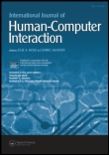
INTERNATIONAL JOURNAL OF HUMAN-COMPUTER INTERACTION
Exploring the Synergy Between Humans and TechnologyINTERNATIONAL JOURNAL OF HUMAN-COMPUTER INTERACTION, published by Taylor & Francis Inc, stands at the forefront of research within the interdisciplinary fields of human-computer interaction, human factors, and ergonomics. Since its establishment, the journal has consistently contributed to advancing the understanding of the interactions between people and computers, making it a vital resource for researchers, professionals, and students alike. With an impressive impact factor reflecting its high citation rate, this journal is recognized as a Q1 publication in both Computer Science Applications and Human Factors and Ergonomics categories for 2023, showcasing its stature within the academic community. Additionally, it boasts a commendable ranking within the top percentiles in key areas on Scopus, ensuring that the research published here reaches broad scholarly audiences. Available in traditional subscription format, the journal covers seminal studies from 1989 to 2024, reflecting ongoing innovation in technology and its applications in everyday life, and thus serves as an essential platform for pioneering research that shapes the future of user experience.
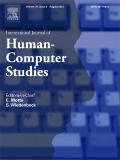
INTERNATIONAL JOURNAL OF HUMAN-COMPUTER STUDIES
Illuminating the Future of Human-Computer StudiesINTERNATIONAL JOURNAL OF HUMAN-COMPUTER STUDIES, published by Academic Press Ltd - Elsevier Science Ltd, stands at the forefront of research dedicated to the dynamic interplay between humans and technology. With a remarkable impact factor reflective of its rigorous academic standards and its prestigious ranking in the Q1 category across vital disciplines such as Education, Engineering, Human Factors and Ergonomics, and Human-Computer Interaction, this journal serves as an essential resource for researchers, professionals, and students alike. Spanning from 1994 to 2024, it showcases pioneering studies that contribute significantly to the understanding of cognitive processes, usability, and the evolving role of technology in society. Despite the absence of Open Access options, access to this journal is facilitated through institutional subscriptions, ensuring that critical findings and advancements are readily available to a global audience. By continuing to publish high-quality research, the INTERNATIONAL JOURNAL OF HUMAN-COMPUTER STUDIES plays a crucial role in advancing the field, fostering innovation, and guiding future research directions.